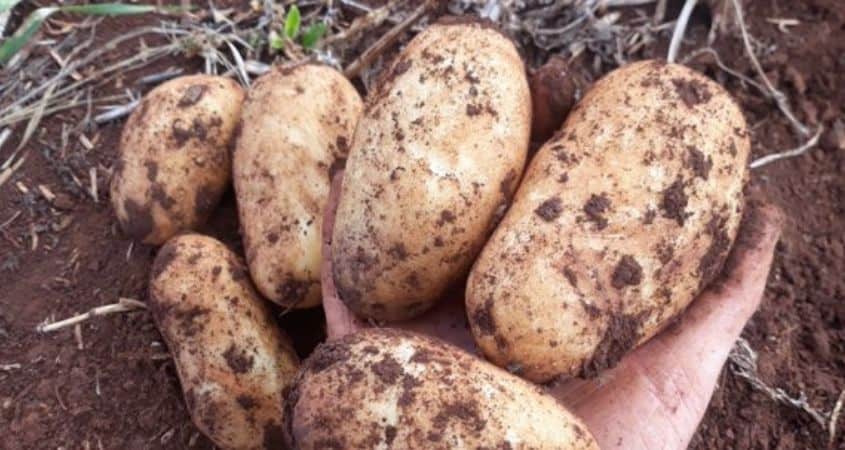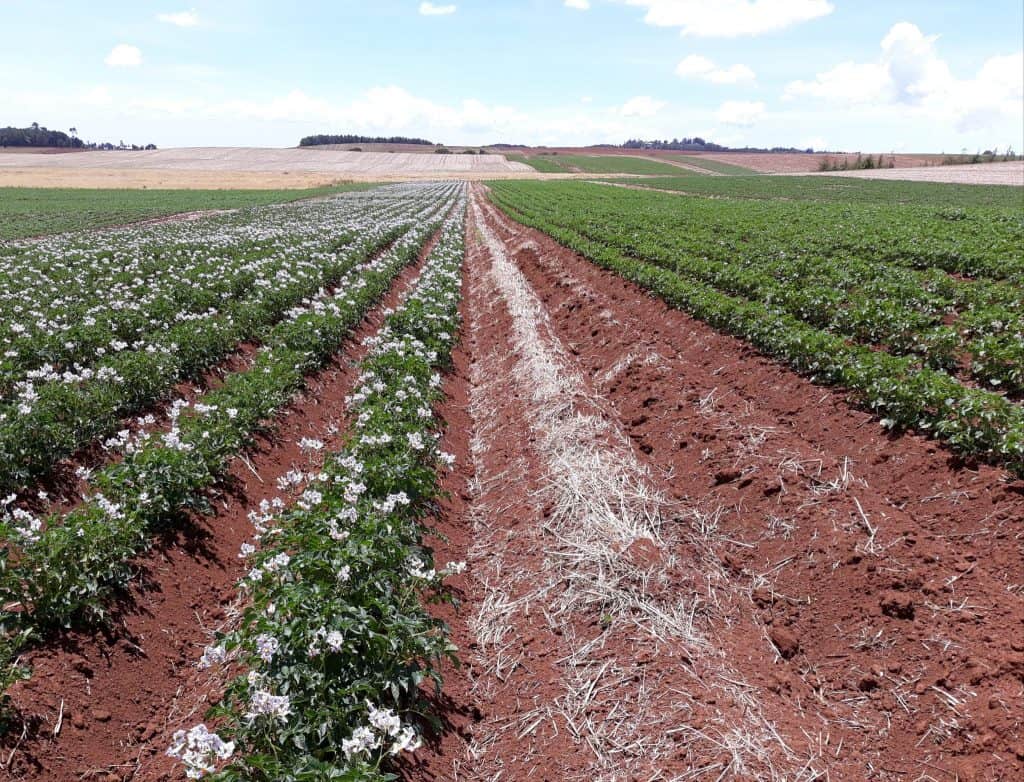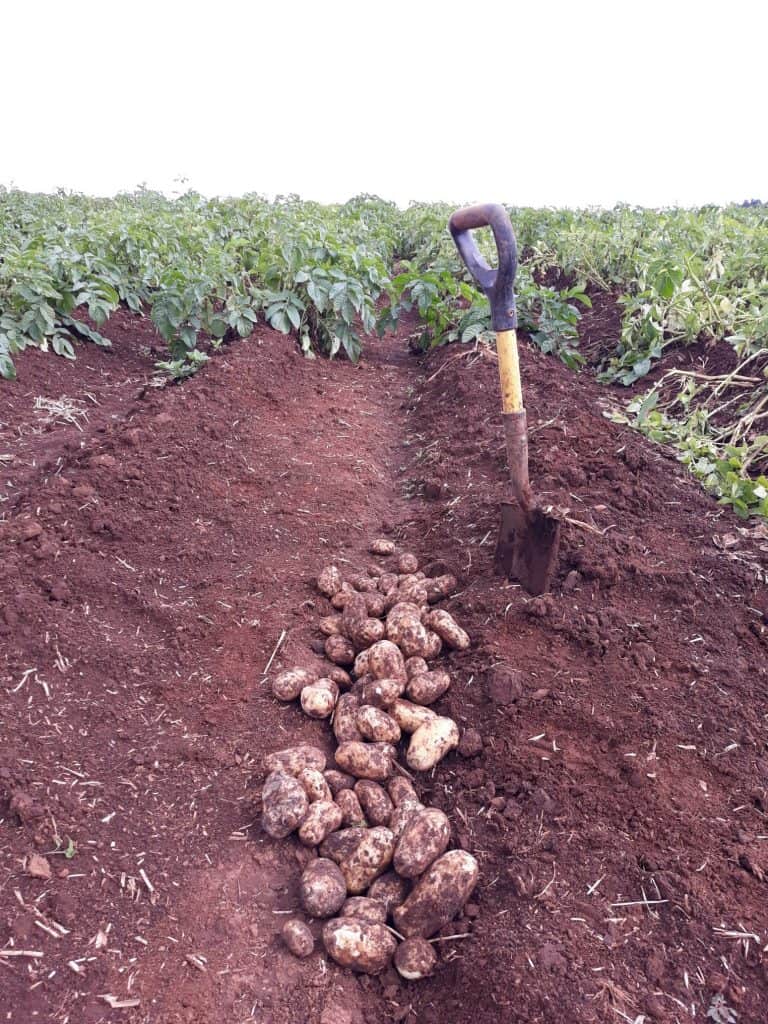
Anyone considering growing potatoes over the coming months should know the benefits and importance of buying clean, certified potato seed variety. This is the best way to ensure the seed is free from Cyst Nematode, Blackleg, and Viruses such as Leaf Roll, all of which can all lead to significant yield or even crop loss.
But what about choosing a variety? Here are some thoughts on just a few commonly grown potato varieties.
Not the highest yielding potato seed variety but tough skins and deep eye depth (which means wastage for processing). Short dormancy when farm saving seed, but extremely weak Blight resistance (2 out of 10). Haulm often falls over at harvest which means when desiccating, you really need to make sure it is killed properly to avoid tuber blight problems.
A red, deep-eye tuber that boils well but is not well suited to processing, although can go for crisps. Produces a very dominant single stem which makes it easy to spot from afar. Because it is easily identifiable I have noticed a lot of bad PCN in Asante in fields around Nyahururu and Ol Kalou.
Extremely popular, moderately high yields. A versatile potato variety but it does fall apart when boiled, which limits its usefulness for some cooking purposes. Shangi has extremely low dormancy so pre-chitting in the field is not uncommon. 6 out of 10 for Blight resistance.

Red tubers with deep eyes. Tends to store well due to the thick skins and long dormancy, so a useful variety for those growing for their own use. Not the tastiest potato, but the Blight resistance is relatively good. Be careful not to plant at too high a density or over-apply Nitrogen as Sherekea produces a large number of stems and a lot of foliage.
Beautiful, bright, round tubers with high yields, but be careful to maintain Blight sprays as Taurus is extremely weak. Good resistance to Rostochiensis PCN.
Weak on Blight and suffers more from Alternaria than any other variety I have seen (no need for expensively marketed fungicides, mancozeb does a good job on Alternaria) but produces very high, stable yields and is resistant to Rostochiensis PCN. Do not over apply Nitrogen as this can delay maturity and skin set.

Resistant to Rostochiensis nematodes, high yields, and a great all-round variety with a waxy tuber and shallow eye depth. Blight control needs to be good, as does Cutworm control because of the soft, thin skin. Tends to need less Nitrogen than other varieties due to its strong haulm growth. This is a high input variety for a more experienced grower.
DISCLAIMER:
1. The information and recommendations for seed varieties, including quality, viability, and performance, are based on specific tests conducted by an independent agronomist. These results apply only to the tested seed sample and conditions. No warranty, express or implied, is provided for recommended seed varieties. The recommendation list is not exhaustive, and omission does not imply inferiority.
2. Information and recommendations for seed varieties are derived from test results and practical experience of an independent agronomist. Tests may not cover all conditions, and we do not guarantee similar results. Recommended varieties may not be suitable for all use conditions; the user must determine suitability based on local conditions and agronomic practices.
3. This article’s information is for general consumer assistance, and we are not liable to any user for the provided information under any circumstances.
Till next time,
Hapy farming!
David

David Jones is the Broad Acre Specialist at Crop Nutrition Laboratory Services Ltd. (CROPNUTS). David has a keen interest in soils and no-till farming systems where he has undertaken work looking into weed levels and changes in soil structure and has extensive experience in field trials and the development of precision farming techniques. In his spare time, he enjoys playing rugby. Follow David on Twitter @Kenya_agron
Order our services and get to know how to improve your soil for better yeilds.